Visiting Selous Game Reserve: Everything You Need to Know
Selous Game Reserve is situated in southern Tanzania and is the oldest and largest wildlife reserve in Africa. If you are wondering if visiting Selous Game Reserve is worth it, this guide will provide you with all the information you need to make a decision. I spent 3 days in Selous during my 2 week trip to Tanzania and I absolutely loved everything about it!
Disclaimer: This post may include affiliate links. If you click one of them, I may receive a small commission at no extra cost to you.
The reserve was named a Unesco World Heritage Site in 1982, and in 2019 was later changed to Nyerere National Park as the government wanted to encourage more people to visit Selous. This park has maintained minimal human impact and undisturbed nature, therefore it maintains a pristine environment for the wildlife that call it home. I definitely noticed the minimal crowds and appreciated the lack of commercialization in the reserve.
The neighbouring Ruaha National Park is also a great park to visit, offering some of the same characteristics of Selous. With it’s drier area you can also experience game drives, walking safaris and fly camping (sleeping under the stars).
Don’t have time to read the entire guide to Selous? No Worries! Please contact me to assist with your travel planning as I work with a local safari tour company based in that area and I can help you plan your safari trip!
Facts About Selous Game Reserve
Spanning 50,000 square kilometers, the reserve is larger than African hot spots like the Serengeti National Park and Kruger National Park and in my opinion, was one of the best national parks in Tanzania to visit. Selous has a very unique environment that supports diverse wildlife, including over 400 bird species and the highest concentration of endangered wild dogs globally. Unlike traditional national parks, Selous allows visitors to venture off-road, providing unparalleled access to its abundant wildlife amidst the woodlands.
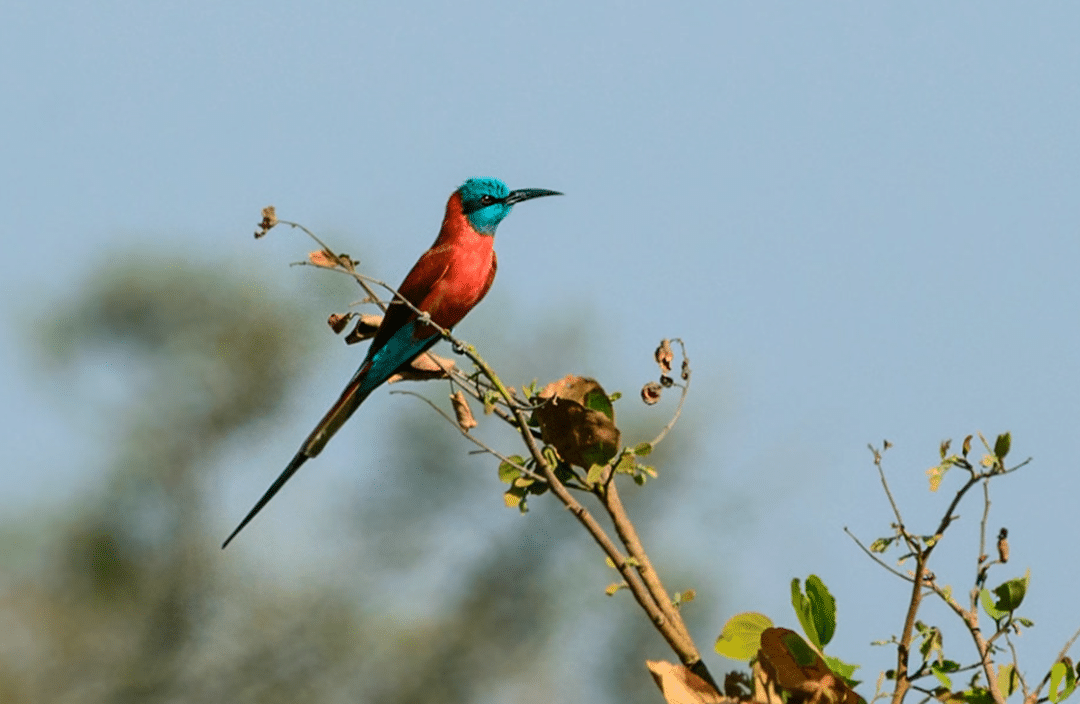
How To Get There
There are three ways to get to Selous Game Reserve:
By Air: Flying into Selous is more expensive, but can be done via local aircrafts on a 45 minute flight from Dar es Salaam or a 90 minute flight from Ruaha National Park.
By Train: Beginning in Dar es Salaam, take a 4-5 hour journey via TAZARA (Tanzania Zambia Railway) and see the beautiful countryside.
By Road: Most tour packages start and end in Dar es Salaam via road trave. It provides flexibility and picturesque scenery. I recommend going by vehicle so you can admire the country on your way to the remoteness.
Due to the size of the reserve and the lack of human impact, most of the park is not accessible. Most lodges and safaris operate in the northern part of the reserve, 5% of the total area, north of the Rufiji River. Thus why this park is considered so remote, and much of the area has never even been explored.
Best Time to Visit Selous:
June to October: When considering the ideal time to visit Selous Game Reserve, many visitors go during the dry season. This period boasts minimal rainfall, lower malaria risk, and an abundance of wildlife near water sources. Predators are particularly active during these months, promising exhilarating game viewing experiences. Despite increased crowds, the reserve offers a quieter alternative to popular destinations like the Serengeti or Ngorongoro Crater.
During the dry season, temperatures remain relatively mild, reaching highs around 27°C/81°F. Although temperatures rise slightly in September and October, the concentration of wildlife around water sources grows, making these months prime for safari adventures for those tolerant of warmer climates.
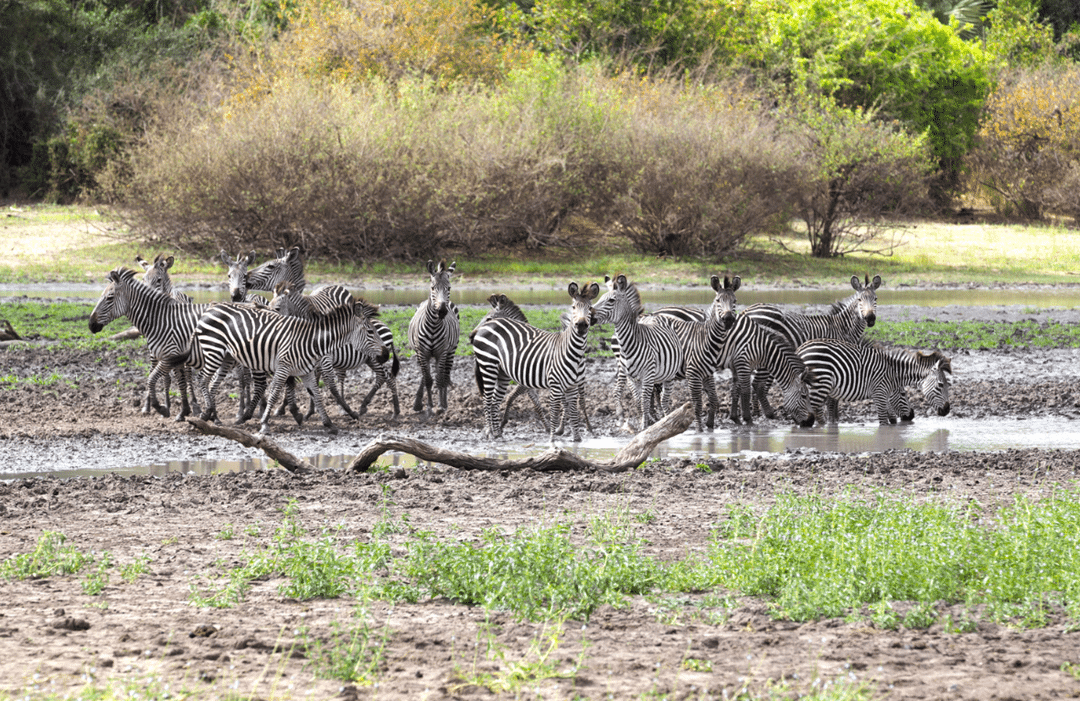
November to February: The ‘green season’ spanning from November to February offers a different but equally captivating experience. Despite occasional afternoon showers, the crowds are less, and if you are interested in birdwatching, this is an appealing time to visit. The period coincides with the birthing season for many antelope species, drawing in predators and increasing the likelihood of witnessing predator-prey interactions. I visited towards the end of February and had great weather.
March to May: The heaviest rains typically occur during this time, prompting wildlife to disperse into the wilderness. Malaria risk peaks during this time, leading most camps and lodges to close from the end of March until June.
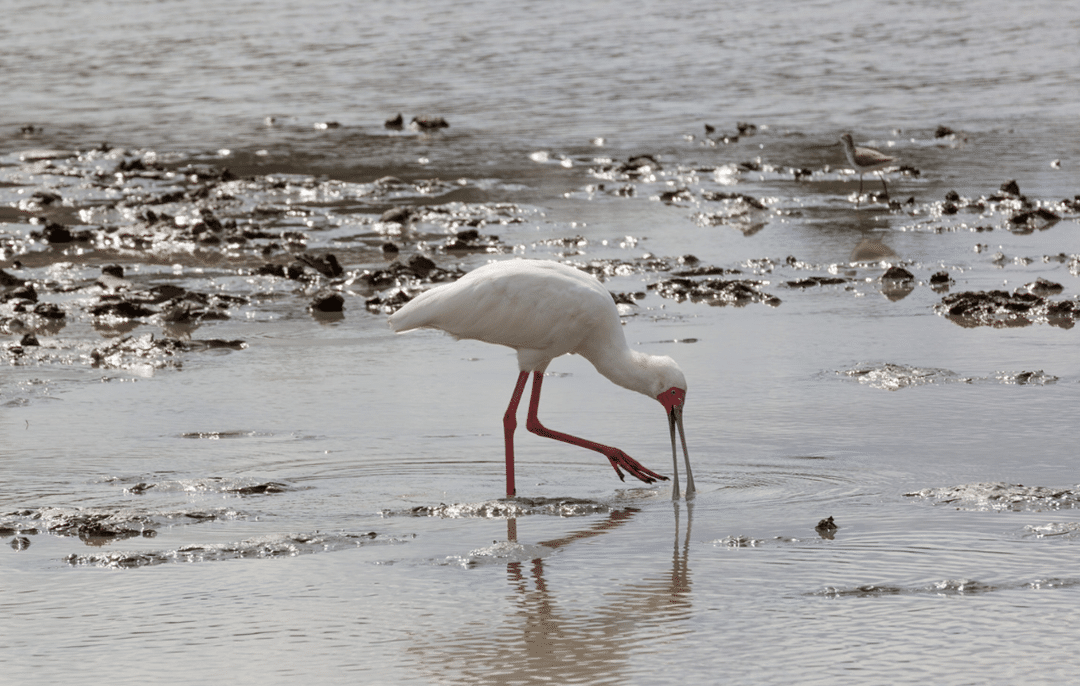
Self Drive or Safari?
You can self drive in Selous, if you have a 4WD vehicle and don’t mind roughing it on the roads. The entrance fees for the reserve is $50USD per adult and $30USD per child.
I recommend doing a safari. The expert guides know where to go to find the animals and birds and you do not have to worry about driving. I spent 3 days in Selous on a safari and it was definitely the way to experience the reserve. I work with an extremely knowledgeable safari company in that area and I would love to help you plan your safari!
Animals In Selous
Selous Game Reserve has lakes, forests, trees, and the largest river in Tanzania, the Rufiji River, which makes the variety of animals very high! There is a high chance that you will see the Big Five, including buffalo, lions, rhinos, elephants and leopards. You may also see many other species including giraffes, wildebeests, hippos, zebras, elands, impala, crocodiles and hyenas.
Selous is noted for having the highest concentration of African wild dogs, the 2nd most endangered mammal in Africa. Of the approximate 6600 wild dogs found in Africa, at least 1300 reside in the reserve. This was the biggest reason I chose to visit this area. After getting a tip on a pack of 10 wild dogs, my guide and I travelled for a couple of hours to find the pack, which we did. It was amazing to watch them!
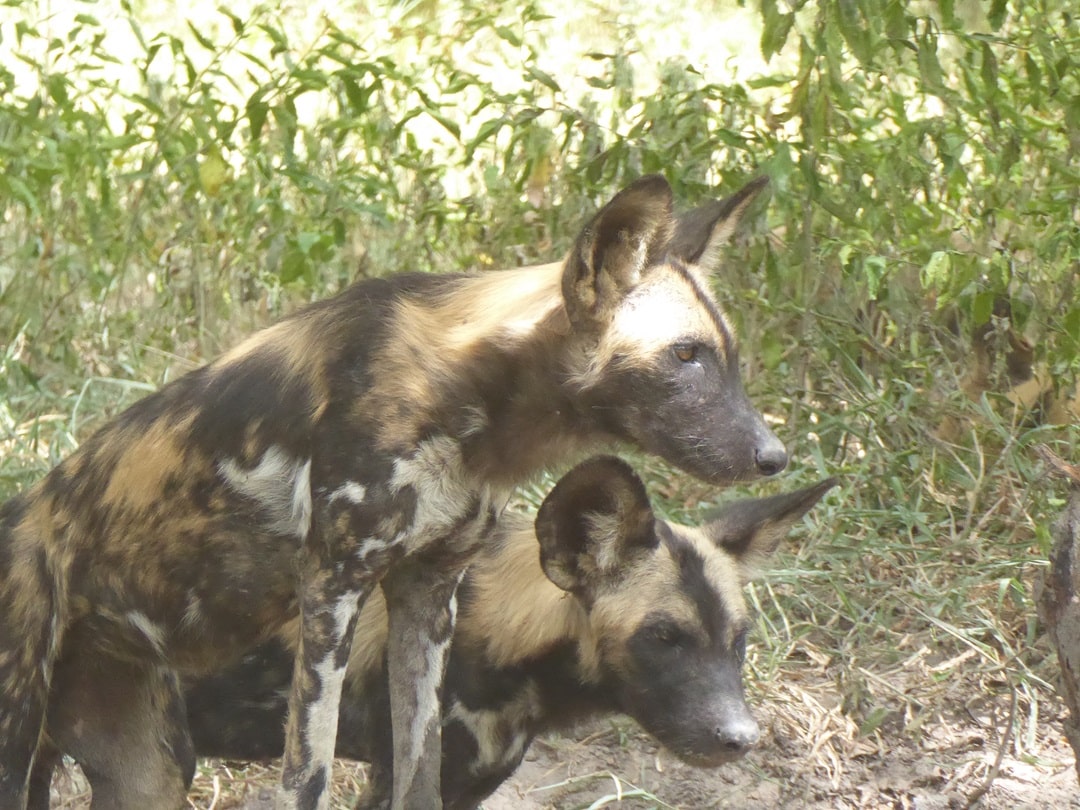
I am an avid birdwatcher and that was the other reason that I wanted to visit this reserve. With over 400 species of the birds found in Tanzania in this reserve, with the aid of my guide, we found many birds which made my trip to Selous the best experience.
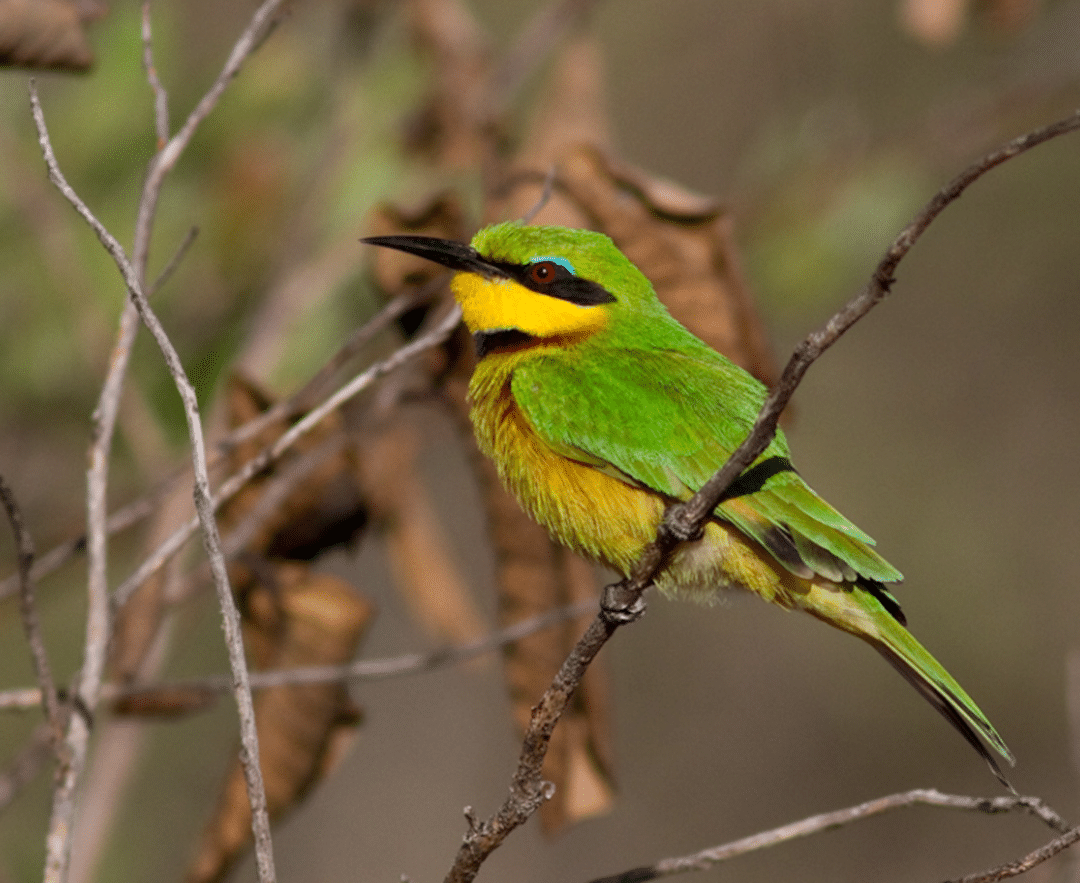
Things to Do in Selous
Game Drive: Led by knowledgeable guides, these excursions are the best way to search for the iconic wildlife and birds found here.
Boat Safari: If your accommodation is located on or near Rufiji River, then taking the scenic boat ride on the river was very cool. I got to see hippos, crocodiles and many birds. I recommend doing a sunset excursion for the amazing views over the river.
Walking Safari: This is something that you have to experience if possible. Walking through the African wilderness, with the guidance of armed rangers, for your safety, if you are lucky enough you may encounter some giraffes or zebras or who knows what else. Unfortunately my walk was very quiet with respect to wildlife, but was still a neat experience.
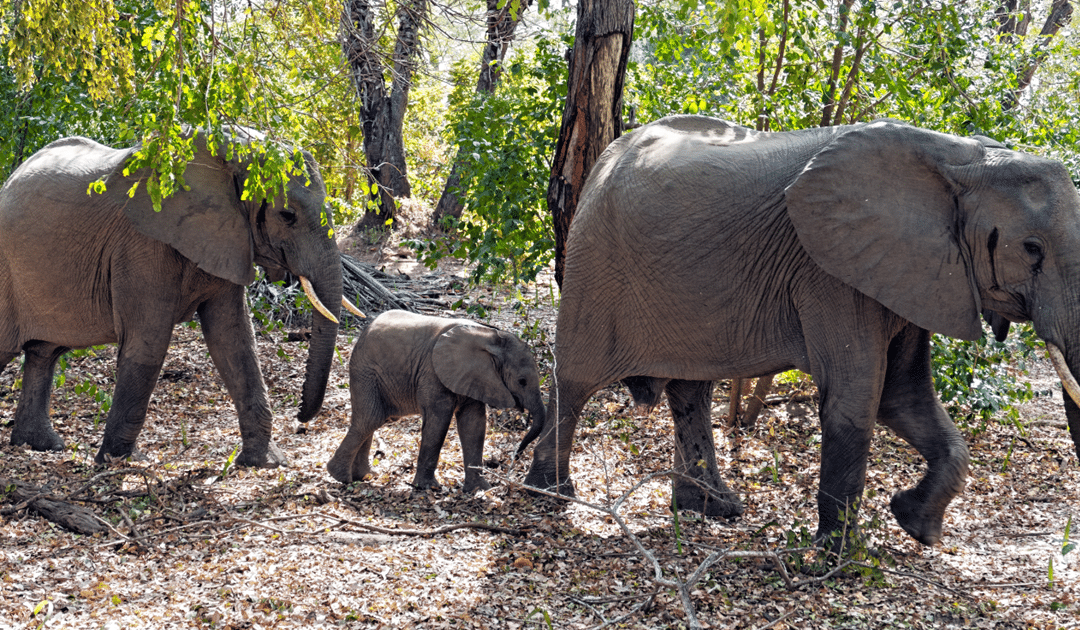
FAQs for Visiting Selous Game Reserve
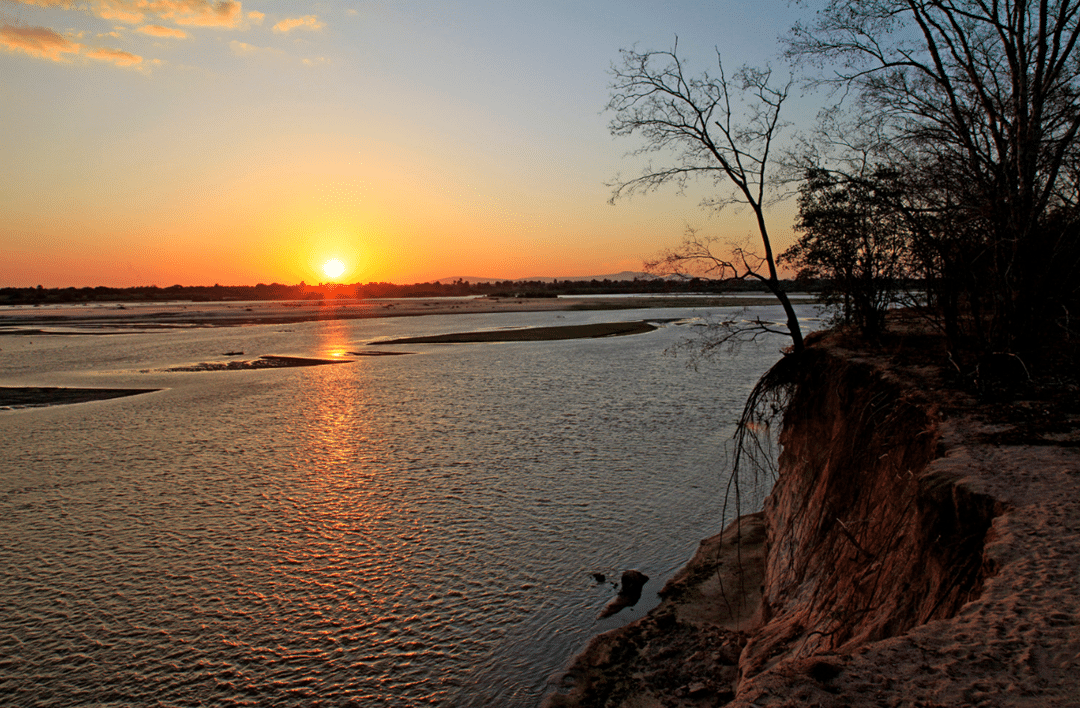
Final Thoughts
Selous Game Reserve is an amazing, remote destination in Tanzania which offers an amazing safari experience. By venturing off the beaten path and embracing the wonders of Selous, you can embark on a transformative journey filled with unforgettable encounters and cherished memories, like I did. Visiting Selous Game Reserve promises an experience like no other—a journey into the heart of wild Africa that will leave you with a deep connection to nature.
If you enjoyed my post, follow me on social media or subscribe to my newsletter below, so you can stay connected on future posts, trips, tips and more.


